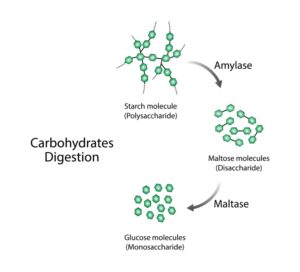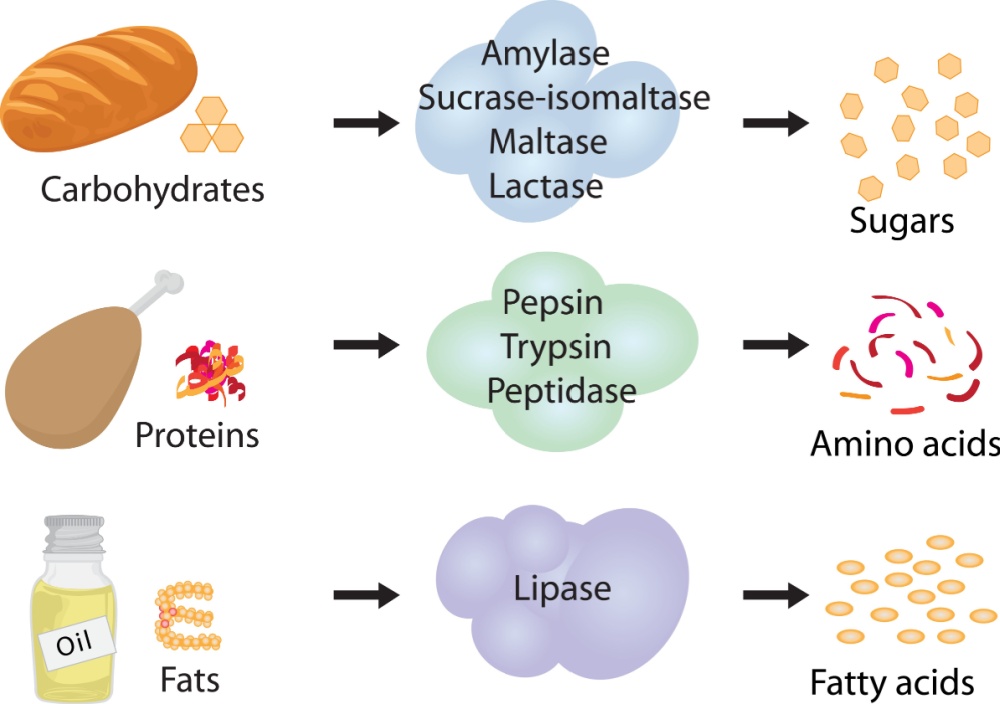What's On This Page?
ToggleLet’s talk about something most of us have dealt with but hate admitting: Bloating, gas, and food sensitivities. One moment you’re enjoying that cheesy slice of pizza, the next you’re bloated and uncomfortable. As a pharmacist with a deep love for natural remedies, I want to share two gentle yet effective allies for digestive distress today. First up, digestive enzymes.
Digestive enzymes are proteins your body makes to help break down food. Think of them as tiny chemical scissors, snipping carbs into sugars, proteins into amino acids, and fats into fatty acids. When your enzyme production slows, which can happen due to age, stress, or health conditions, food sits in your gut, ferments, and causes gas and bloating. If you get bloated after specific meals, especially ones heavy in dairy, protein, or fiber, a targeted digestive enzyme taken with meals can offer immediate relief.
What Are Digestive Enzymes
Digestive enzymes are specialized proteins that help break down the food we eat into smaller, more easily absorbable molecules. They’re produced naturally by our bodies, primarily in the pancreas, small intestine, and stomach.
These enzymes act like tiny molecular cutting shears, breaking complex food particles into more simpler forms that our bodies can use. For example, they turn carbohydrates into simple sugars, proteins into amino acids, and fats into fatty acids.
When we don’t produce enough digestive enzymes, it can lead to various digestive issues, including bloating, gas, and food sensitivities. This is where supplemental digestive enzymes can come in handy.

5 Common Digestive Enzymes and Their Function
There are several types of digestive enzymes, each with a specific job:
- Amylase: Breaks down carbohydrates into simple sugars (ie bread, pasta, rice)
- Lipase: Breaks down fats into fatty acids (ie butter, cheese, oils)
- Protease: Breaks down proteins into amino acids (ie meat, eggs, beans)
- Lactase: Breaks down lactose, the sugar in dairy (ie milk, yogurt, ice cream)
- Cellulase: Breaks down plant fiber (ie vegetables, whole grains, leafy greens)
Each enzyme targets a specific type of food molecule. For instance, if you’re lactose intolerant, you might benefit from a lactase supplement to help digest yogurt, milk and cheese. There’s a lot of confusion. For example, a “lactose” enzyme won’t help you digest spinach, it’s just for dairy products.
Some people naturally produce fewer enzymes, while others may have conditions that affect enzyme production. In these cases, supplemental enzymes can be particularly helpful.
Benefits for Bloating Relief
Digestive enzymes can be a game-changer for those struggling with bloating. When food isn’t properly broken down, it can ferment in the gut, and that is the cause of excessive gas and bloating. It’s not that you have a “weak” stomach, it’s that you need enzyme support.
By aiding in the breakdown of food, digestive enzymes can:
- Reduce the workload on your digestive system
- Minimize gas production
- Help alleviate bloating and discomfort
Many people find relief from bloating by taking enzyme supplements with meals (before you begin eating), especially when consuming foods they know are troublesome.
Remember, while enzymes can provide significant relief, it’s always best to consult with a healthcare professional before starting any new supplement regimen.
Exploring Probiotics
Now that we’ve covered digestive enzymes, let’s dive into the world of probiotics. These beneficial bacteria play a crucial role in maintaining a healthy gut ecosystem. Probiotics are live beneficial bacteria that make a community called a microbiome. These bacteria (and yeast) reside inside your intestines, not your stomach. Unlike enzymes that work immediately to break down the food you eat,, probiotics need time. They have time to colonize and live in your digestive tract for awhile.
The average human gut microbiome weighs approximately 2 to 5 pounds (0.9 to 2.3 kilograms). This includes all the microbes living primarily in your intestines.
What’s in the gut microbiome?
It’s not just bacteria — the gut microbiome is a complex ecosystem made up of:
- Bacteria: The most abundant and diverse component (ie Bacteroides, Firmicutes)
- Archaea: Less common, but important (ie Methanobrevibacter smithii)
- Viruses: Especially bacteriophages that infect bacteria
- Fungi and yeast: Like Candida species present in smaller numbers but still significant
- Protozoa and other microbes: Found in some individuals
Friendly gut bacteria helps improve immune function, help you make a lot of vitamins including vitamin K, B12, folate and riboflavin). Probiotics improve digestion, and reduce inflammation all over, that’s assuming the bacterial microbiome is a community of friendly bacteria, free of thugs! Probiotics offset damage done by antibiotics and conditions like IBS. You may feel a bit more gassy when you first start them, but that’s usually just your gut adjusting and killing the thugs while restoring peace and order.
The Role of Probiotics in Gut Health
Probiotics are live microorganisms that, when consumed in adequate amounts, provide health benefits to the host. They’re often called “good” or “helpful” bacteria because they help keep the gut healthy and maintain balance.
These beneficial bacteria play several important roles in our digestive system:
- They help maintain a balanced gut microbiome
- They support the immune system
- They aid in the production of certain vitamins
- They assist in the breakdown of food
A healthy gut microbiome is crucial for overall digestive health. When the balance of good bacteria is disrupted, it can lead to various digestive issues, including bloating and gas.
Probiotics can help restore this balance, promoting better digestion and potentially alleviating symptoms of digestive discomfort.
Did you know over a 100 medications destroy your gut microbiome? Among the biggest drug muggers of gut flora include anti-emetics, laxatives, antibiotics and analgesics.
Types of Probiotic Strains
There are many different strains of probiotics, each with its own unique benefits. Some of the most common and well-researched strains include:
- Lactobacillus: This genus includes many species that can help with lactose digestion and may alleviate diarrhea.
- Bifidobacterium: These bacteria support the immune system and may help with IBS symptoms.
- Saccharomyces boulardii: This is actually a yeast that can help with diarrhea and other digestive issues.
When choosing a probiotic supplement, it’s important to look for products that contain strains that have been scientifically studied for the specific benefits you’re seeking.
It’s also worth noting that different strains can have different effects, so what works for one person might not work for another. It may take some trial and error to find the right probiotic for you.
How Probiotics Aid Gas Reduction
Probiotics can be particularly effective in reducing gas and bloating. Here’s how they work:
- They help break down food more efficiently, reducing the amount of undigested food that can ferment and produce gas.
- They can help restore balance to the gut microbiome, which can reduce excessive gas production.
- Some strains can help digest specific types of food that commonly cause gas, such as lactose or certain carbohydrates.
Many people find that regular consumption of probiotics, either through supplements or probiotic-rich foods like yogurt or kefir, can significantly reduce their issues with gas and bloating.
However, it’s important to note that when first starting probiotics, some people may experience a temporary increase in gas as their gut adjusts to the new bacteria. This usually subsides after a few days to a week.
Comparing Digestive Enzymes and Probiotics
Now that we’ve explored both digestive enzymes and probiotics individually, let’s compare these two digestive aids to understand how they differ and when each might be most beneficial.
Key Differences Explained
While both digestive enzymes and probiotics can support digestive health, they work in different ways.

Digestive enzymes provide immediate support by helping break down food during the digestive process. They’re like a direct workforce, tackling the food as soon as it enters your system.
Probiotics, on the other hand, are more like long-term residents in your gut. They colonize your digestive tract and provide ongoing support by maintaining a healthy balance of gut bacteria.
Both can be beneficial for digestive health, but they serve different purposes and may be more suitable in different situations.
When to Choose Digestive Enzymes
Digestive enzymes might be the better choice when:
- You have specific food intolerances (like lactose intolerance)
- You experience bloating or gas after eating certain foods
- You have pancreatic insufficiency or other conditions that affect enzyme production
- You need immediate relief from digestive discomfort
For example, if you know that eating dairy always gives you trouble, taking a lactase enzyme supplement with your milk or cheese can provide immediate support.
Enzymes are also helpful for those big holiday meals or when you’re eating foods you don’t normally consume. They can provide that extra digestive boost when your system needs it most.
When Probiotics Are the Better Option
Probiotics might be more suitable when:
- You’re looking to improve overall gut health
- You’ve recently taken antibiotics and need to restore gut balance
- You suffer from chronic digestive issues like IBS
- You want to support your immune system
Probiotics are great for long-term gut health support. They can help maintain a healthy balance of gut bacteria, which is crucial for overall digestive wellness.
They’re particularly beneficial after a course of antibiotics, which can disrupt the gut microbiome. Taking probiotics can help restore balance and prevent issues like antibiotic-associated diarrhea.
Remember, it’s not always an either/or situation. Many people find benefits in using both digestive enzymes and probiotics as part of their digestive health routine.
Addressing Food Sensitivity
Food sensitivities can be a major source of digestive discomfort. Let’s explore how to identify these issues and how both digestive enzymes and probiotics can offer support. Some people are allergic to pollen and sneeze from it. Did you know it’s in your food too? Read my other blog, Pollen Food Syndrome: 5 Strategies to Handle Pollen in Your Diet.
Identifying Food Sensitivity Symptoms
Food sensitivity is different from food allergies and can be tricky to identify. Common symptoms include:
- Bloating and gas
- Abdominal pain or discomfort
- Diarrhea or constipation
- Headaches, what is your MIGRENADE ?
- Fatigue
- Skin issues like eczema – Read this article, 10 Novel Treatments for Chronic Itch, Eczema and Skin Infections
These symptoms often appear hours or even days after consuming the problematic food, making it challenging to pinpoint the cause.
One effective way to identify food sensitivities is through an elimination diet, where you remove suspected trigger foods for a period and then reintroduce them one by one, monitoring for symptoms.
It’s important to work with a healthcare professional when addressing food sensitivities, as they can help guide you through the process and ensure you’re still getting all the necessary nutrients.
Using Digestive Enzymes for Support
Digestive enzymes can be particularly helpful in managing food sensitivities. Here’s how:
- They can help break down specific food components that might be causing issues.
- By aiding in more complete digestion, they reduce the amount of undigested food particles that trigger sensitivity reactions. by leaving the permeable gut and entering your bloodstream.
- They can help alleviate symptoms like bloating and gas that accompany food sensitivities.
For example, if you’re sensitive to dairy, a lactase enzyme supplement can help break down the lactose, potentially reducing or eliminating symptoms. Remember, while enzymes can provide significant relief, they don’t cure the underlying sensitivity. It’s still important to work on identifying and addressing the root cause of your food sensitivities.

Probiotics in Managing Food Sensitivity
Probiotics can also play a role in managing food sensitivities:
- They can help strengthen the gut barrier, reducing the likelihood of undigested food particles triggering a sensitivity reaction.
- Some probiotic strains can help break down certain food components, similar to digestive enzymes.
- They can help modulate the immune system, potentially reducing overreactions to food.
- Some people do have reactions to certain strains of probiotics (see below for more on that)
Research has shown that certain probiotic strains can be particularly helpful for specific food sensitivities. For instance, some Lactobacillus strains have been found to help with dairy sensitivity.
The Caveat – When Probiotics Backfire
While probiotics can be beneficial, it’s important to choose the right strains and give them time to work. Unlike digestive enzymes, which provide immediate support, probiotics often need several weeks to colonize the gut and show their full benefits.
Most people think probiotics are harmless, but the truth is, introducing new bacterial strains. especially if your gut is already inflamed or out of balance, can sometimes backfire. Your immune system is constantly surveilling your gut, and when unfamiliar microbes show up, it can trigger a mild autoimmune-type reaction or low-grade inflammation, particularly if you’re prone to leaky gut or autoimmunity.
Not all probiotics are created equal, some strains are anti-inflammatory, while others can overstimulate the immune system. Some strains help with acid reflux, and some make it worse. Some strains help with SIBO while others may trigger flares. That’s why it’s smart to go slow, support your gut lining first, and choose strains with a solid safety record, especially if you have an autoimmune condition or a sensitive system.
Choosing the Right Support
Selecting the right digestive support can make a significant difference in managing bloating, gas, and food sensitivities. Let’s explore how to tailor your approach for optimal results.
Factors to Consider for Bloating Relief
When choosing a solution for bloating relief, consider:
- The timing of your bloating (ie immediately after meals or throughout the day)
- Any specific foods that seem to trigger bloating
- Whether you have any diagnosed digestive conditions
- Your overall gut health and regularity
If bloating occurs immediately after meals, especially after eating specific foods, digestive enzymes might be your best bet. They can help break down troublesome foods more efficiently.
For chronic bloating or bloating that isn’t tied to specific meals, probiotics might be more beneficial. They can help improve overall gut health and function over time.
Remember, bloating can sometimes be a sign of more serious conditions. If your bloating is severe or persistent, it’s important to consult with a healthcare professional.
Tailoring Solutions for Gas Reduction
To find the right solution for gas reduction:
- Keep a food diary to identify trigger foods
- Consider the type of gas (ie sulfur-smelling vs. odorless)
- Note when gas occurs (ie after meals or throughout the day)
- Assess your overall diet and lifestyle
If gas is primarily related to specific foods, digestive enzymes targeted to those foods can be helpful. For example, alpha-galactosidase enzymes can help with gas caused by beans and other legumes. 
For overall gas reduction, a combination approach might be best. This could include:
- Digestive enzymes with meals
- Daily probiotic supplements
- Dietary changes to reduce gas-producing foods
- Lifestyle modifications like eating slowly and avoiding carbonated drinks
Personalized Approach to Food Sensitivity Support
Managing food sensitivities requires a personalized approach:
- Identify trigger foods: Use an elimination diet or food diary to pinpoint problematic foods.
- Choose targeted enzymes: Select enzyme supplements that address your specific sensitivities.
- Incorporate probiotics: Choose strains that have been studied for your particular sensitivities.
- Consider timing: Use enzymes with meals and probiotics daily for ongoing support.
- Monitor and adjust: Keep track of your symptoms and adjust your approach as needed.
Remember, what works for one person may not work for another. It may take some trial and error to find the right combination of enzymes, probiotics, and dietary changes that work best for you.
The key to managing digestive issues is to listen to your body and be patient. Finding the right support takes time, but the relief is worth the effort. It’s best to consult with a healthcare practitioner before starting any new supplement regimen, especially if you have existing health conditions or are taking medications.


